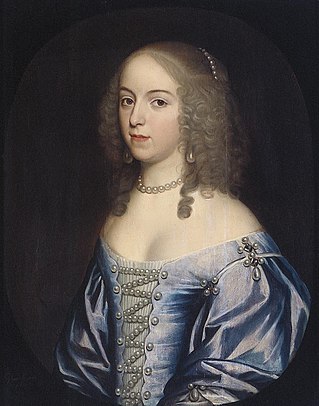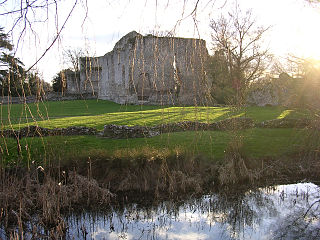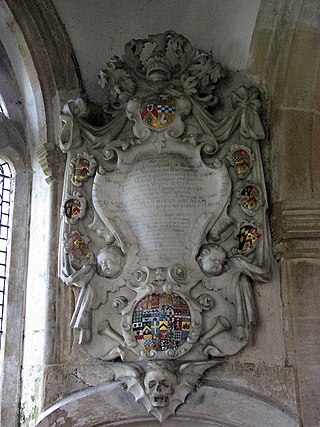
The Long Parliament was an English Parliament which lasted from 1640 until 1660. It followed the fiasco of the Short Parliament, which had convened for only three weeks during the spring of 1640 after an 11-year parliamentary absence. In September 1640, King Charles I issued writs summoning a parliament to convene on 3 November 1640. He intended it to pass financial bills, a step made necessary by the costs of the Bishops' Wars in Scotland. The Long Parliament received its name from the fact that, by Act of Parliament, it stipulated it could be dissolved only with agreement of the members; and those members did not agree to its dissolution until 16 March 1660, after the English Civil War and near the close of the Interregnum.

The Restoration of the Stuart monarchy in the kingdoms of England, Scotland and Ireland took place in 1660 when King Charles II returned from exile in continental Europe. The preceding period of the Protectorate and the civil wars came to be known as the Interregnum (1649–1660).
In English history, the penal laws were a series of laws that sought to uphold the establishment of the Church of England against Catholicism and Protestant nonconformists by imposing various forfeitures, civil penalties, and civil disabilities upon these dissenters. The penal laws in general were repealed in the early 19th century during the process of Catholic Emancipation. Penal actions are civil in nature and were not English common law.

The words Popery and Papism are mainly historical pejorative words in the English language for Roman Catholicism, once frequently used by Protestants and Eastern Orthodox Christians to label their Roman Catholic opponents, who differed from them in accepting the authority of the Pope over the Christian Church. The words were popularised during the English Reformation (1532–1559), when the Church of England broke away from the Roman Catholic Church and divisions emerged between those who rejected Papal authority and those who continued to follow Rome. The words are recognised as pejorative; they have been in widespread use in Protestant writings until the mid-nineteenth century, including use in some laws that remain in force in the United Kingdom.

Sir Harbottle Grimston, 2nd Baronet was an English lawyer and politician who sat in the House of Commons at various times between 1640 and 1685 and was Speaker in 1660. During the English Civil War he remained a Parliamentarian but was sympathetic to the Royalists.

Emilia Butler, Countess of Ossory, born Æmilia van Nassau-Beverweerd, was an Anglo-Dutch courtier.

The Popery Act 1698 was an Act of Parliament of the Parliament of England enacted in 1700. The long title of the Act was "An Act for the further preventing the Growth of Popery".
Events from the year 1782 in Ireland.

The Roman Catholic Relief Act 1791 is an Act of the Parliament of Great Britain passed in 1791 relieving Roman Catholics of certain political, educational, and economic disabilities. It admitted Catholics to the practice of law, permitted the exercise of their religion, and the existence of their schools. On the other hand, chapels, schools, officiating priests and teachers were to be registered, assemblies with locked doors, as well as steeples and bells to chapels, were forbidden; priests were not to wear vestments or celebrate liturgies in the open air; children of Protestants were not to be admitted to the schools; monastic orders and endowments of schools and colleges were prohibited.

The Convention Parliament of England followed the Long Parliament that had finally voted for its own dissolution on 16 March that year. Elected as a "free parliament", i.e. with no oath of allegiance to the Commonwealth or to the monarchy, it was predominantly Royalist in its membership. It assembled for the first time on 25 April 1660.
Events from the year 1657 in England.
Sir John Bramston, the younger, was an English lawyer and politician who sat in the House of Commons from 1660 to 1679. The son of Sir John Bramston, the elder and his first wife Bridget Moundeford, daughter of Thomas Moundeford, he was educated at Wadham College, Oxford, and called to bar at Middle Temple in 1635. In 1660 he was elected to the Convention Parliament for the county of Essex and again in the Cavalier Parliament of 1661. He frequently acted as chairman of committees of the whole House of Commons of England and was returned to parliament for Maldon in 1679 and 1685. He left an autobiography.

The Restoration of the monarchy began in 1660. The Commonwealth of England, Scotland and Ireland (1649–60) resulted from the Wars of the Three Kingdoms but collapsed in 1659. Politicians such as General Monck tried to ensure a peaceful transition of government from the "Commonwealth" republic back to monarchy. From 1 May 1660 the English, Scottish and Irish monarchies were all restored under King Charles II. The term Restoration may apply both to the actual event by which the monarchy was restored, and to the period immediately before and after the event.
Sir John Knight was an English merchant and politician who sat in the House of Commons from 1660 to 1681. When mayor of Bristol he became notorious for his activities against Nonconformists.

Richard Whitehead or Whithed was an English politician who sat in the House of Commons at various times between 1628 and 1653. He fought for the Parliamentary army in the English Civil War.

The Succession to the Crown Act 2013 is an Act of the Parliament of the United Kingdom that altered the laws of succession to the British throne in accordance with the 2011 Perth Agreement. The Act replaced male-preference primogeniture with absolute primogeniture for those in the line of succession born after 28 October 2011, which means the eldest child, regardless of gender, precedes any siblings. The Act also repealed the Royal Marriages Act 1772, ended disqualification of a person who married a Roman Catholic from succession, and removed the requirement for those outside the first six persons in line to the throne to seek the Sovereign's approval to marry. It came into force on 26 March 2015, at the same time as the other Commonwealth realms implemented the Perth Agreement in their own laws.

Sir William Cook, 2nd Baronet, of Broome Hall in Norfolk, was a member of the East Anglian gentry and a Tory Member of Parliament.

The Papists Act 1734 was an Act of Parliament passed by the Parliament of Great Britain during the reign of George II. Its long title was "An act to indemnify protestant purchasers of estates of papists, against the penalties or forfeitures papists are liable to for not having enrolled their estates, in pursuance of an act of the third year of king George the first for that purpose".












